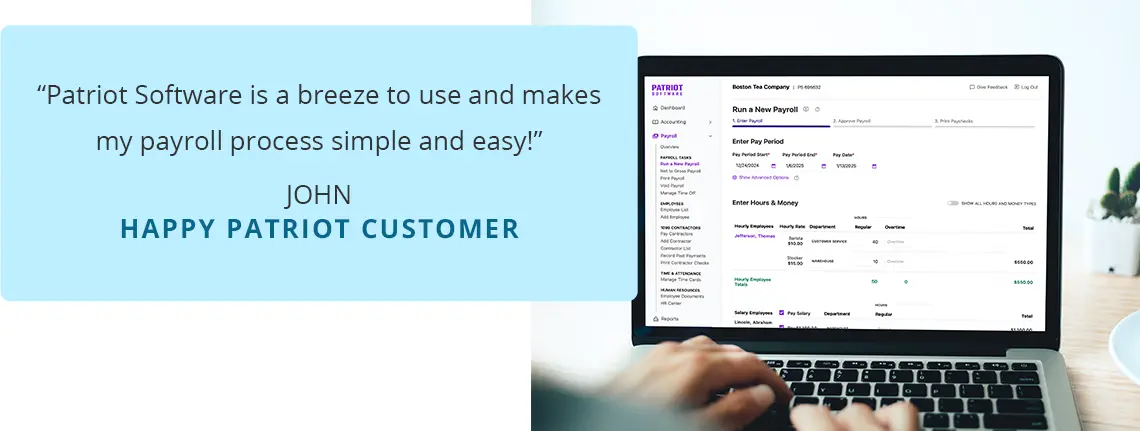Here’s the situation: Your employee takes a little time off because they can’t physically work. What happens? They may be eligible for disability insurance benefits. Typically, you can elect to offer disability insurance to employees. However, five states have a mandatory state disability insurance program.
Does your state require state disability insurance? Let’s get into it.
What is state disability insurance?
State disability insurance (SDI) is a state-mandated program that partially replaces a worker’s wages if they cannot perform their duties due to a non-work-related injury, illness, or other disability. SDI provides short-term disability benefits.
Employees cannot use disability insurance if their illness or injury results from their work duties. Employees who become injured or ill on the job receive workers’ compensation insurance benefits instead.
You can obtain disability insurance from your state or a private policy. Both SDI and private disability insurance policies are funded by payroll deductions from an employee’s wages. Employers submit deductions to the state taxing authority for SDI or a private insurance company for standard disability insurance.
Which states have state-mandated disability insurance?
Again, not all states have state disability insurance laws or programs. Only five states have laws regarding short-term disability insurance, including:
- California
- Hawaii
- New Jersey
- New York
- Rhode Island
Each state has different laws and regulations for SDI. The five states with disability insurance require employers to carry it for their employees through state programs or private insurance policies.
1. California’s state disability insurance
Employers in California can offer disability insurance through the state or a private insurance company. Private plans are also known as voluntary plans (VPs).
Employers who offer a VP to employees must first apply through the Employment Development Department (EDD) and receive approval. At a minimum, VPs must match benefits provided by EDD SDI.
A voluntary plan must:
- Provide the same benefits to employees as traditional SDI benefits
- Offer at least one benefit that is better for employees than SDI
- Not cost more than the SDI plan
- Stay in regulation with the benefit changes SDI implements through legislation or other regulations
The majority of employees must agree to use a VP instead of SDI before employers can purchase private coverage.
Regardless of the type of SDI you offer, you must:
- Withhold wages for the plan
- Inform employees of available disability benefits
- Notify employees of any changes to benefits
- Maintain up-to-date records on the plan for all eligible employees
Employers who offer voluntary plans must allow employees to opt-out and use SDI instead.
2. Hawaii’s state disability insurance
The state of Hawaii calls SDI temporary disability insurance (TDI). Hawaii employers have three options for providing TDI benefits to employees:
- Purchase insurance (aka an insured plan) from an authorized insurance carrier.
- Adopt a self-insured plan. Self-insurers must be approved by the state’s Disability Compensation Division (DCD) and prove their ability to pay benefits through approved DCD methods.
- Use a collective bargaining agreement that contains sick leave benefits that are at least as favorable as those required by law.
Employers may offer to pay the amount of the entire benefits or equally share withholdings with employees. The employee’s contribution cannot be more than 0.5% of the employee’s weekly wages or more than the maximum weekly deduction of $6.00.
3. New Jersey’s state disability insurance
New Jersey SDI is known as TDI, too. Most employers in the state must participate in TDI. However, federal government positions are exempt from the program.
If you’re a New Jersey employer, you may choose to provide TDI through public insurance programs. You must deduct a payroll tax from employee wages and remit payments to the state. Or, you can purchase a private plan if it meets the minimum requirements for TDI.
Unless an employer chooses a private plan, employees are automatically covered under a New Jersey state plan.
Employers must give employees a written notification of temporary disability benefits:
- At the time of hire,
- When they take time off for eligible SDI reasons, AND
- Whenever the employee requests one.
4. New York’s state disability insurance
New York employers must purchase SDI disability insurance from a private insurance carrier, State Insurance Fund, or by becoming self-insured in New York.
Employers who choose to be self-insured must apply and meet qualification requirements. And, New York requires all self-insured employers to make benefits payments directly to affected employees and meet all other obligations.
Business owners may deduct payments from employee wages to help cover the cost of providing New York SDI benefits. The state limits employee contributions to 0.5% of an employee’s wages and no more than $0.60 per week.
5. Rhode Island’s state disability insurance
Rhode Island has laws for both temporary disability insurance and temporary caregiver insurance (TCI). TDI applies to the temporary disability of an employee who must take time off of work. TCI provides temporary time off to employees who must care for a family member such as a:
- Spouse
- Domestic partner
- Child
- Parent
- Parent-in-law
- Grandparent
Employees may also use TCI to bond with a newborn, adopted, or foster child.
State law requires the programs to be funded by payroll deductions. Employers must:
- Withhold TDI tax from each employee’s wages,
- Remit and file taxes to the Employer Tax Unit each quarter,
- Provide all employment and wage reports when requested by the division,
- Display the required poster where all employees can easily see it, AND
- Provide TDI information to all employees.
Long-term disabilities
SDI, TDI, and TCI are all short-term programs designed to provide cash benefits to employees for off-the-job injuries or illnesses. But, what happens if an employee suffers from a long-term disability vs. short-term disability?
Employees who suffer from long-term disabilities that prevent them from working may be eligible for benefits services beyond those that SDI offers. State disability programs can help employees as they wait for confirmation of their eligibility for further benefits.
The Department of Labor offers a list of disability resources for employees. The Social Security Administration offers additional information regarding disability benefits and how to apply.
This article has been updated from its original publication date of February 17, 2016.
This is not intended as legal advice; for more information, please click here.



